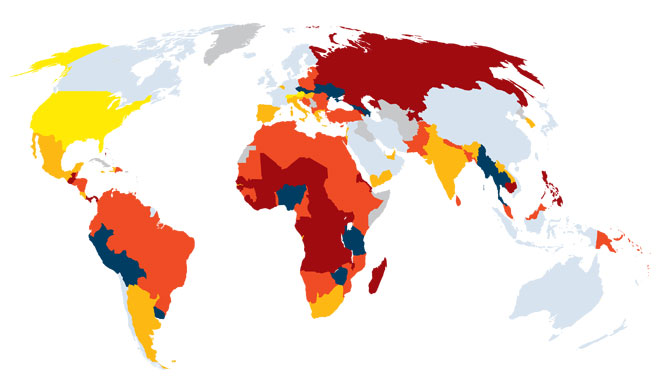
The precipitous rise of Monero in the past few days has caused many users and traders to ask: what’s behind the surge of the self-proclaimed “untraceable” XMR token?
Monero Surge Indicative of Demand for Privacy?
For those familiar with the altcoin market, it’s not how much a coin has made, but more how much has it made for you lately?

The latest favorite is undoubtedly Monero (XMR), which has been experiencing a surge in price, following the announcement that several Dark web markets will be accepting the cryptocurrency whose motto is “secure, private, and untraceable.”

Since August 28th, its price has shot up over 100% and is showing little sign of slowing down at press time.
While Bitcoin is still the most common cryptocurrency used on the Dark web today for its pseudonymity, privacy-focused competitors such as Dash and Monero are on its heels as traders are betting on increasing demand for this ‘digital cash.’
However, Veritaseum CEO, Reggie Middleton, isn’t buying into the hype just yet. He explained:
While there is obviously a significant demand for truly anonymous digital currencies and a steep increase in price, one shouldn’t confuse correlation with causation. Sharp increases in price could just as easily be a function of limited supply relative to demand (for anonymous coins) as it is excessive demand relative to supply.
Nevertheless, Middleton does see Monero as a “promising project” while remaining cautiously skeptical.
“I am weary of projects touting anonymity (ie. privacy) in the open public, for those who wish to infiltrate such projects (eg. the NSA) have both the resources and the impetus to do so,” he added. “As to what level of success remains to be seen, but remember how secure bitcoin transactions through the TOR network was purported to have been?”
Dark Markets Matter

But the reason for the surge can still be partially attributed to its entry into the Dark market. So why are anonymity-focused cryptocurrencies experiencing such a boom while simultaneously calls for regulation and identity-tracking policies are growing louder?
Well, the global black market is big business. In fact, the untaxed, unlicensed and unregulated economies of the world — collectively known as System D — are the fastest growing in the world.
As Blockchain security engineer, Kristov Atlas, previously pointed out:
Those of us who do not participate in the underground economy are often unaware of its breadth: it grew to include one half of the world’s workers by 2009, and is projected to include two-thirds of workers by 2020.
Therefore, it’s not surprising that a significant number of speculators are looking to tap into this lucrative yet behind-the-scenes market. Fortunately, this is becoming easier to do for the average person as better anonymizing tools and privacy-centric digital cash such as Monero are getting more accessible with each day.
Journalist Robert Neuwirth tells Wired:
If you think of System D as having a collective GDP, it would be on the order of $10 trillion a year. That’s a very rough calculation, which is almost certainly on the low side. If System D were a country, it would have the second-largest economy on earth, after the United States.
![]()

Source: Friedrich Schneider et al., “New Estimates for the Shadow Economies All Over the World,” International Economic Journal, 2010
Bears Roam Road to Regulation
Most Bitcoin advocates can be split into two groups: those who want to promulgate the digital currency into the traditional economy via legislation; and those with libertarian/anarchist leanings who want nothing to do with the nation state at all. However, contrary to their depiction in the media, the majority of the latter group are by no means ‘criminals.’
 “They see themselves as supporting their family, hiring people, and putting their relatives through school—all without any help from the government or aid networks,” Neuwirth adds.
“They see themselves as supporting their family, hiring people, and putting their relatives through school—all without any help from the government or aid networks,” Neuwirth adds.
But given the recent price spike and the immense potential of this underground economy, is state-level or national-level ‘legalization’ even worth the effort for cryptocurrency investors? Not according to Liberty.me’s Justin Ranvier.
“Every single person who has been beating the drums of regulation, compliance, and conformity is proposing that we change Bitcoin’s fundamental value proposition in order to cater to a segment of the economy that is predicted to shrink from less than 1/2 of the global workforce to less than 1/3 over the next six years, while simultaneously shunning the only segment of the economy which is growing,” he explains.
“For everyone else who wants Bitcoin to succeed, these facts suggest an easy way to evaluate every innovation in the general cryptocurrency space,” Ranvier continues. “Every time a new startup launches, or a new software project announces, ask one question:
‘Does this new thing improve the black market?’ If the answer to this question is ‘no,’ then the thing is useless.
As Bitcoin passes through regulatory hoops in select jurisdictions, efforts are already underway to make it more anonymous. In the meantime, however, Dash and Monero might already be providing something useful for the more privacy-focused user.
Whether anonymizing cryptos can manage to gain a foothold as a form of payment in this $10 trillion dollar market will determine if there’s real demand for untraceable money or if it’s merely another speculative altcoin bubble.
